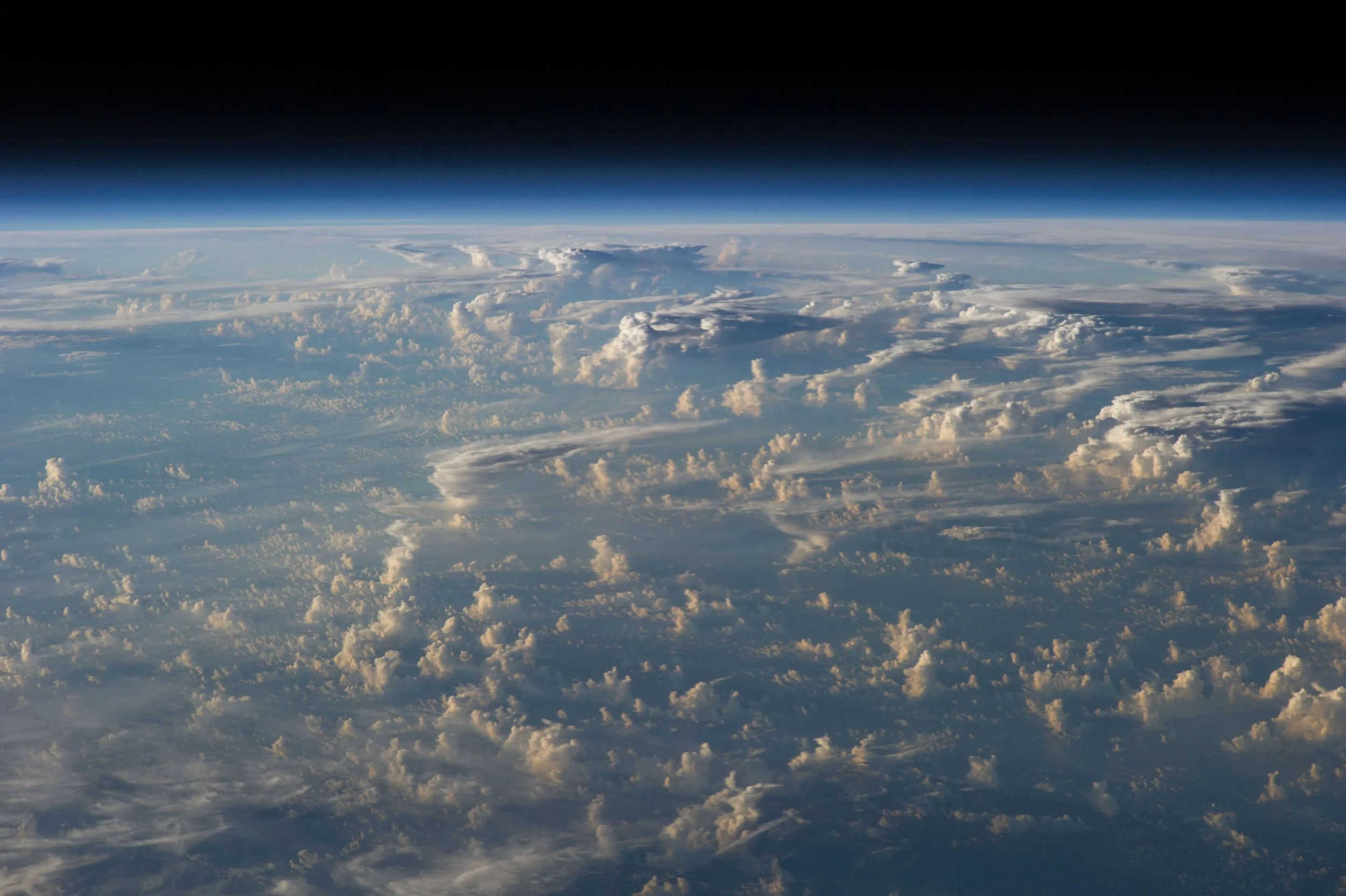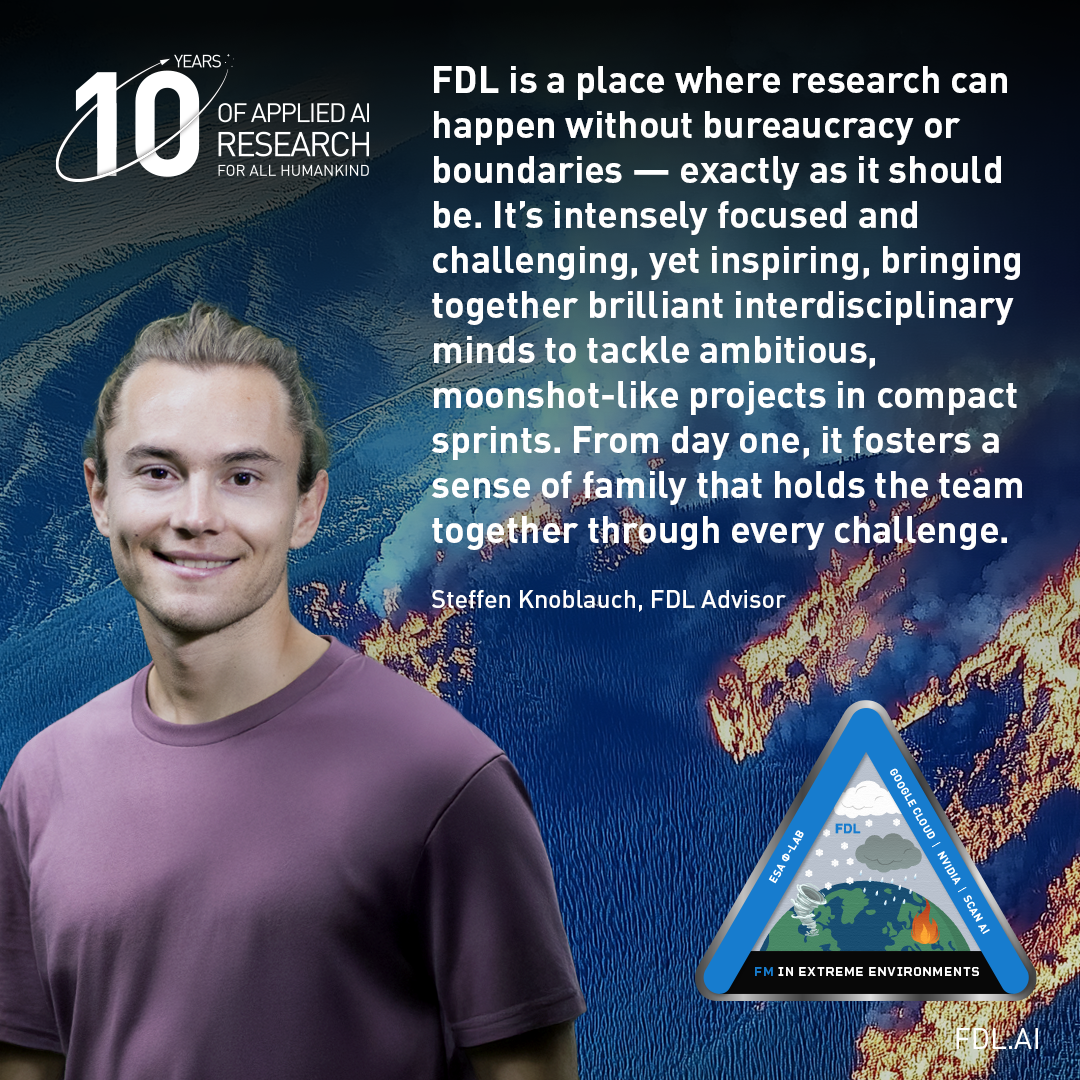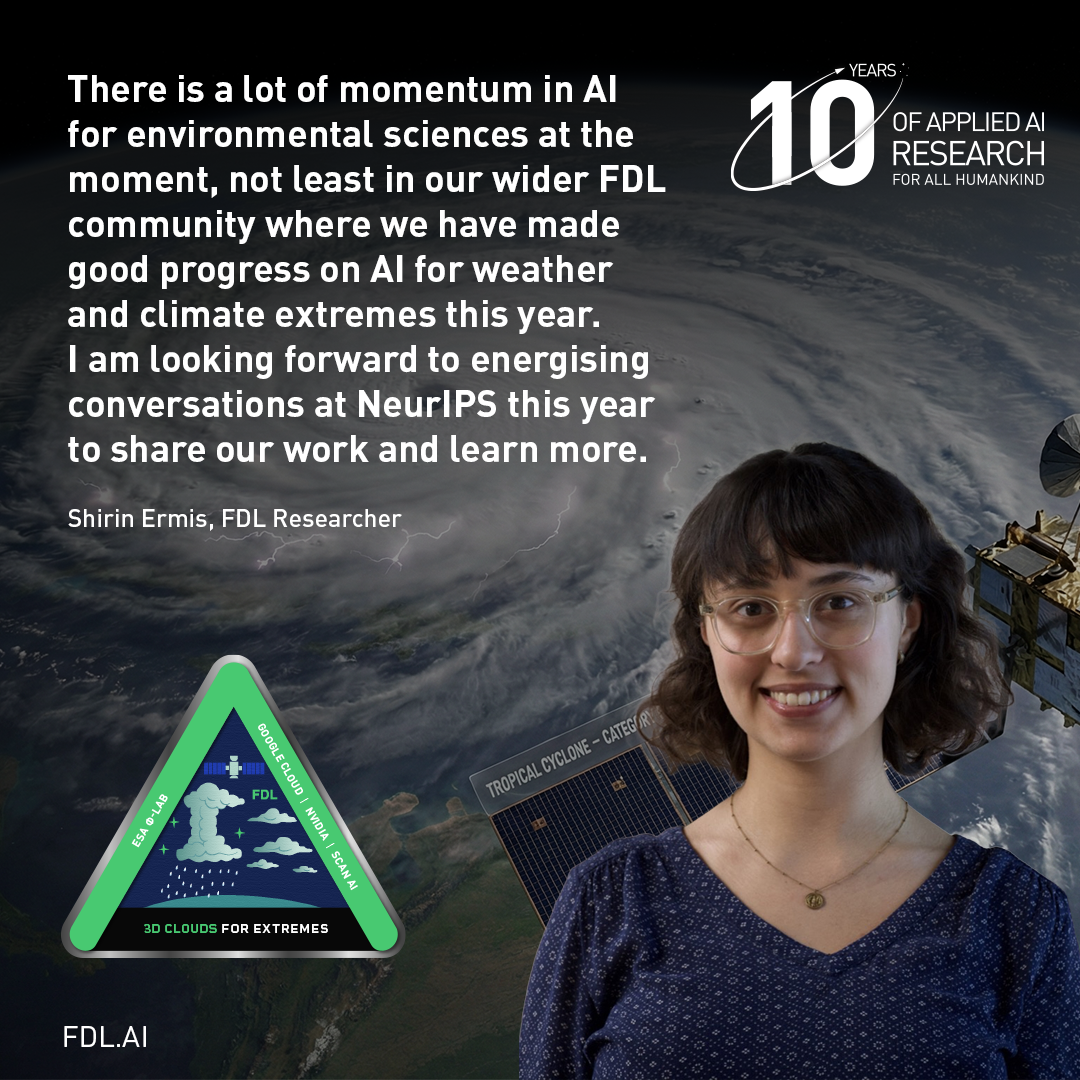
applications
Application are now open for FDL Earth System Lab 2026
You can now register you interest in Heliolab, Lunarlab and Earth Systems Lab, FDLMed and Flightlab while we continue to refine this year’s research challenges.
Please check our dedicated FAQ section below for more information. Make sure to follow our Linkedin and X or subscribe here to keep informed on any updates.
You can also contact recruitment@trillium.tech with any questions.
Information session 2025
Our 2025 information session was held in late February 2025. In case you missed it, we recorded it for you.
The 2026 FDL Horizons: A Deep Dive into ESL 2026 information sessions will be held on Wednesday, 25 February 2026
You can also contact recruitment@fdl.ai with any questions you may have about the process.
Ask Earth Systems Lab Alumni:
What is FDL EUROPE, and why should you apply?
Ioanna Bouri, FDL Europe 2022
Alumnus
Anna Jungbluth, FDL Europe 2019-2022
Alumnus & Faculty
Raúl Ramos, FDL Europe 2022
Faculty
WHY fdl?
a primer for professors and supervisors
FAQS
What sort of applicants are we looking for?
The participants in ESL are PhD or postdoctoral level researchers in AI, data science and/or space sciences. Successful candidates are matched to form small multidisciplinary, complementary teams for the research sprints. ESL carefully curates teams from all the researchers that make it through to the final selection pool, taking into account subject expertise, technical capacity and ability to work across disciplines.
I’m not sure if I meet all the criteria, should I still apply?
We are looking for a diverse group of individuals, so we strongly encourage you to apply even if you’re not sure that you meet our criteria. Teamwork skills are just as important as anything else. That said, we expect to have many more applicants than available places, so we will prioritise applicants in PhD or postdoctoral programmes.
When do applications close?
Applications open on December 1, 2025 and close on March 31, 2026. There is the possibility of an additional call for applicants if specific domain or subject specialists are needed to match the challenge questions, but this is not guaranteed.
Once I apply, what is the timeframe for receiving an interview invitation?
Applicants are interviewed as they come in, meaning the sooner you apply, the sooner the interview process begins. Because of this, applying sooner than later is highly encouraged.
When can I expect an answer regarding my application?
Researchers will be informed about the outcome of the application process after the applications close, in late April 2025.
What are the dates of the Earth Systems Lab research sprint?
The sprint takes place over eight weeks from mid-June to mid-August. Full-time commitment is required throughout the duration of the research sprint.
Is Earth Systems Lab a full time commitment?
Yes. ESL is a full-time commitment and beyond. Teams need to work hard over the eight weeks to achieve state-of-the-art results. In return, ESL provides a unique opportunity to work with globally recognised leaders in the field and produce career-enhancing work into the future.
Do I need to put my own research on hold?
During the research sprint, teams work intensively on their projects and are expected to be present and active for the full eight weeks. There may also be additional social activities and field trips so be prepared to be kept busy. However, the work you do during ESL will complement your research - either by providing a deep-dive introduction to emerging AI techniques to take back to your own investigations, or providing an opportunity to work shoulder-to-shoulder with world-class experts from ESA and the private sector. Researchers from previous ESL programmes have commented on the value of getting a fresh perspective and strong relationships and friendships.
Do I have to pay to take part in Earth Systems Lab?
No. Researchers receive a stipend for the duration of the programme as well as complimentary accommodations for any in-person portion of the programme.
Is Earth Systems Lab an accompanied programme?
No. Accommodation is provided for researchers but we have no additional accommodation available for friends and family during in-person portions of the programme.








